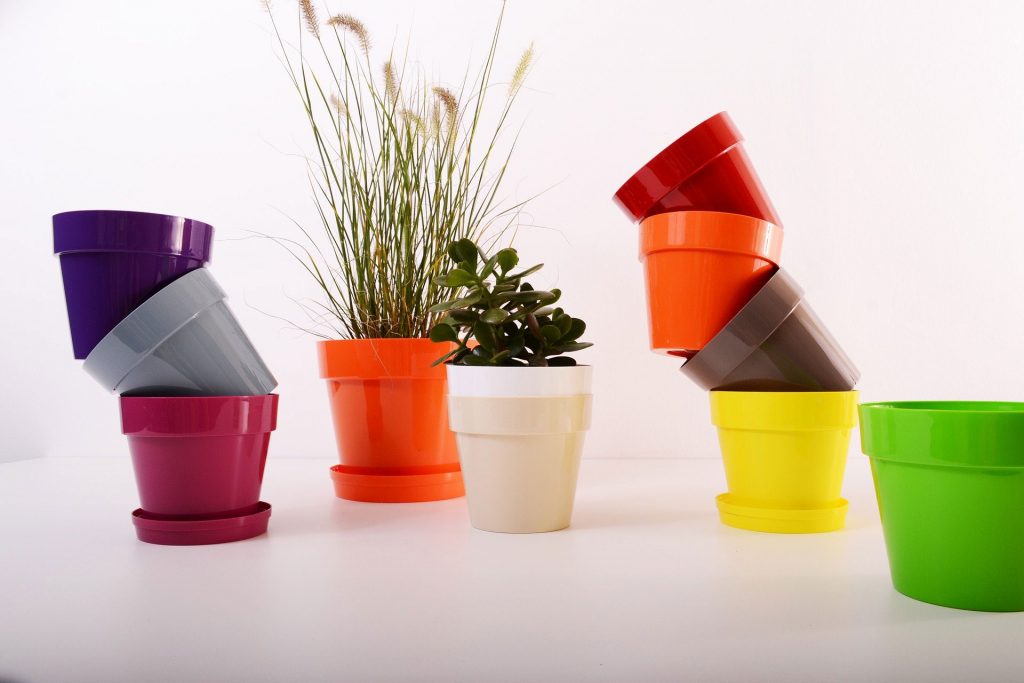Can You Garden Without Plastics?
Plastic: is there anything more symbolic of the scourge of modern living?
Plastics are cheap “throwaway” materials that virtually never degrade, creating all kinds of environmental problems downstream.
The good news, though, is that the fightback has begun, and gardens are on the front line.
Gardening with less plastic has become something of a movement. People who love nature and being outdoors often don’t feel comfortable showing up to their local garden centre and buying a bunch of plastic plant pots for their shrubs. It seems wrong.
It is estimated that we get through some 500 million plastic plant tubs per year in the UK, underscoring just how big a role plastic plays in modern gardening. Just as everywhere else, plastic is so convenient, it’s hard not to find uses for it.
How To Cut Your Gardening Plastic Use

So what can you do to cut down on garden plastics?
First, stop buying flowers from the garden centre. There’s no need to buy pot after pot of flowering plant from greenhouses when nature is perfectly capable of delivering flowers to your garden all by itself.
Wildflowers vary by the season. You can use a flowering calendar to tell you which flowers are likely to appear at certain times of the year.
What’s nice about this is that you never quite know what you’re going to get. There are all kinds of exotic species that could arrive, carried on the wind or in the droppings of the creatures who live in your garden.
Second, if you do use pots, opt for the biodegradable versions. There is now a whole host of companies that sell containers made of everything from wood chip to rice husks. These pots are sturdy enough to house soil and plants, but will eventually break down, leaving no harmful remnants or “microplastic” particles in the ground.
Third, if you’ve already got a load of plastic tubs lying around, reuse them or pass them on.
People need plastic pots for plants all the time. They’re great for planting new seedlings or taking cuttings. You can even pass them onto a local school.
Finally, if there is no way for you to reuse or pass on your plastic, check whether you can recycle it at your local recycling centre.
Recyclable plastic falls into one of seven categories, marked out by the triangular arrow icon with a number in the middle. All of these plastics are recyclable in theory, but some plants don’t have the facilities.
Is The Word Getting Out About Plastic-Free Gardening?
The amount of plastic garden waste is truly staggering when you think about it. Five hundred million pots per year is a significant number.
What’s more, it’s not just the plastic that is the problem, but all of the energy used to create it. Plastic might be convenient, but it’s certainly not helping the natural world.
Our task as eco-conscious people, therefore, is to find ways of reducing plastic usage in the garden. New eco-friendly pots make this more feasible than ever before.
